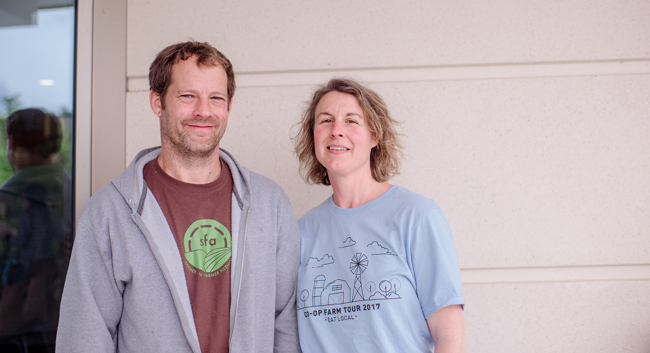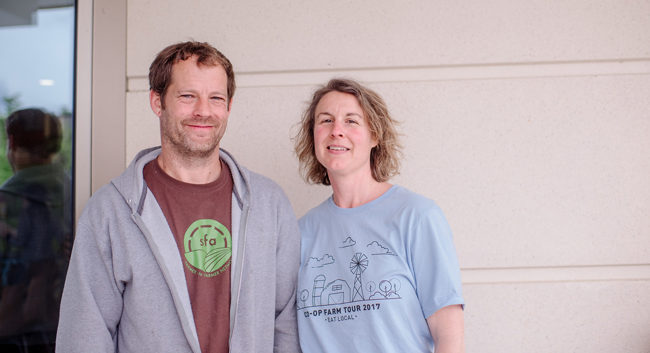
Our paths seem to keep crossing with the farmers of Graise Farm in Faribault, Minn. This February, we talked with farmer Tiffany Tripp about underwriting Chef Camp with the donation of a whole pig, a partnership that came to be and resulted in two of the most splendid pig roasts we’ve ever experienced (pictured below).
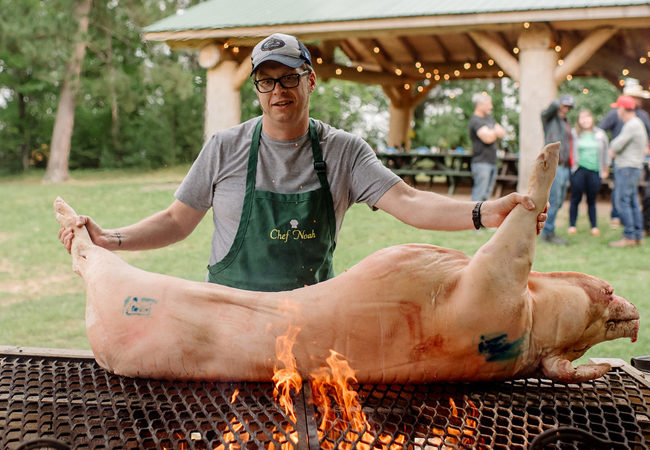
But Tripp also took us to lunch at Smoqehouse, which has turned out to be one of our favorite restaurant discoveries outside of the metro in quite some time, and she recommended that we visit Tanzenwald Brewing Company in Northfield, whose bratwurst was the best we’ve tasted in years. (It can withstand comparison to Waldmann’s superb bratwurst, which is no small feat.)
Since then we’ve visited Tripp and her partner, Andy Olson, at their charmingly rough-around-the-edges farm, interviewed them at Lakewinds Co-op, and tasted their duck eggs at Gray Duck Tavern in St. Paul. We’ve seen their products pop up at co-ops and markets, and crop up on menus and at specialty stores.
In short, they straddle a lot of lines, raising animals, working directly with chefs and consumers, and plotting a course for their little pig, duck, and chicken farm through the complex world of small-scale agriculture.
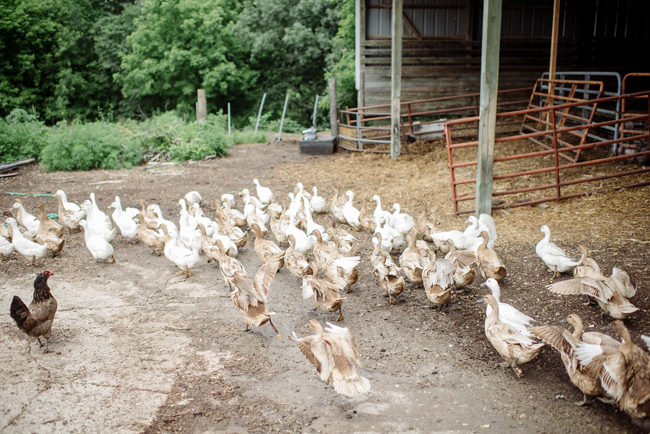
THE MISSION
TIFFANY TRIPP: The mission is to have all of our animals raised humanely and work with the community, and invite the community to have a farm experience and see how animals can interact with nature. And it’s to offer a high-quality product at a fair price.
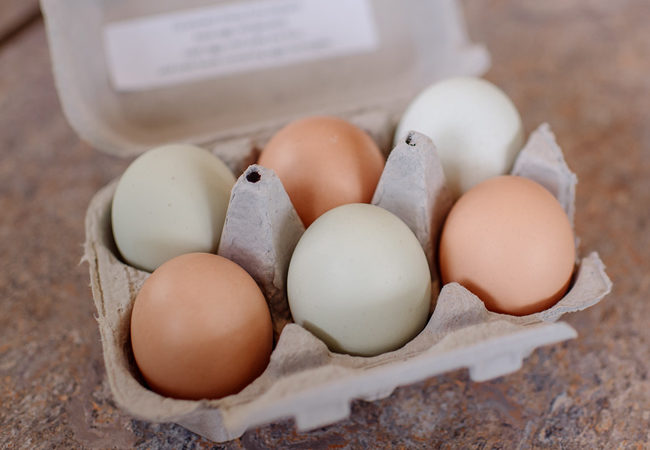
ON DUCK EGGS
TRIPP: There’s a lot of curiosity about them. The internet information [about them] helps.
ANDY OLSON: They’re known to have a little more of an earthy, savory flavor. They’re kind of like the super egg. They’re heavier in good fats and [have] more nutrients than you’ll find in a chicken egg.
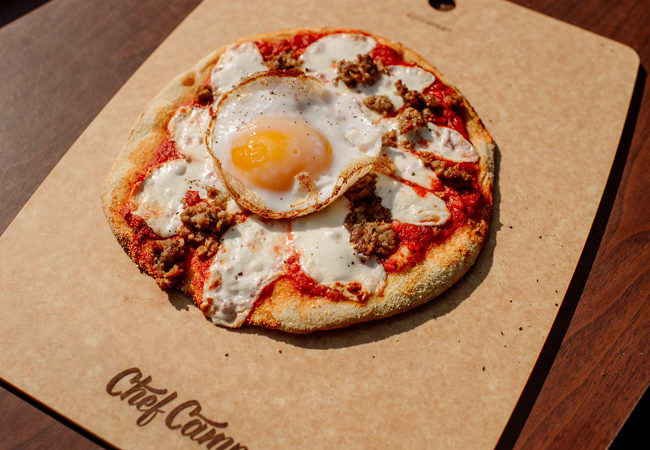
TRIPP: We talk to a lot of people [at] farmers markets, and we like to get feedback. We did a side-by-side comparison when we first started raising the ducks, and we felt like there was a little more flavor to them.
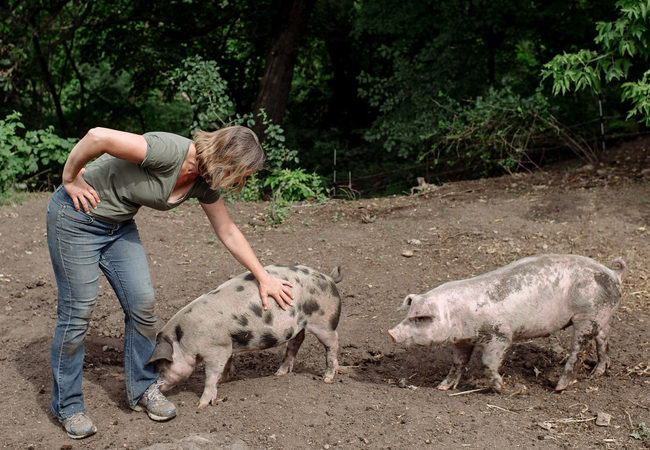
ON THE CONNECTION BETWEEN THE LAND AND ANIMALS
OLSON: There’s a good spring-water source on both sides of the property. It’s hilly, wooded, creeks. It’s under 10 acres of tillable and about 11 acres of woods, so it has some topography. It works well for livestock. Even when [Tiffany’s] family used [the farm] as a dairy, [the land] was used for dry cows to go out and pasture. And birthing cows were outside.
TIFFANY: Our goal is always to have our animals outside and have access to grass and forage.
OLSON: They always have shelter. It might be two or three walls and a roof, but the door is always open. The chickens get shut in at night. When we run our feeder pigs, we use portable shelters so we can move [the chickens] as we move the pigs.
We don’t want the livestock to sit in one spot and turn the land into a dirt lot in 10 days. We want to make a positive impact on the land and move them to the next plot.
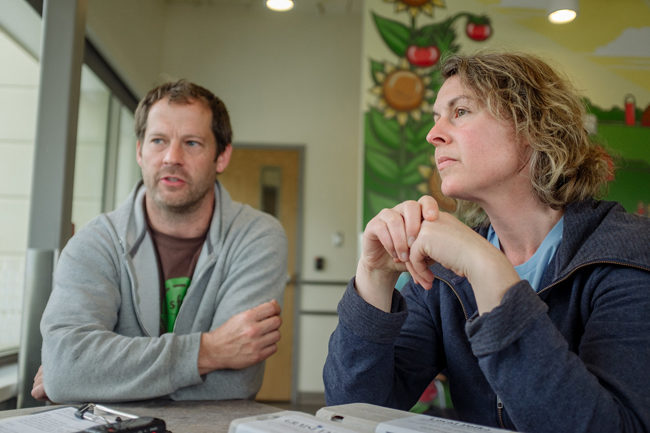
ON EASING YOUR WAY INTO FARMING
TRIPP: We have always had a love for animals and a love of projects. When we were buying food from another farmer, she saw that in us and encouraged us to get some animals and try it out. I kept pushing back because I was traveling internationally, and I come from a dairy farm background, so I know the responsibility of having a farm and having animals.
Together we figured out we could give this a try, so we got a few chickens. We started out [in Nov. 2014] with 10 chickens, and we were just excited to have our own eggs. But within a couple of weeks we got 10 more chickens. And this was December.
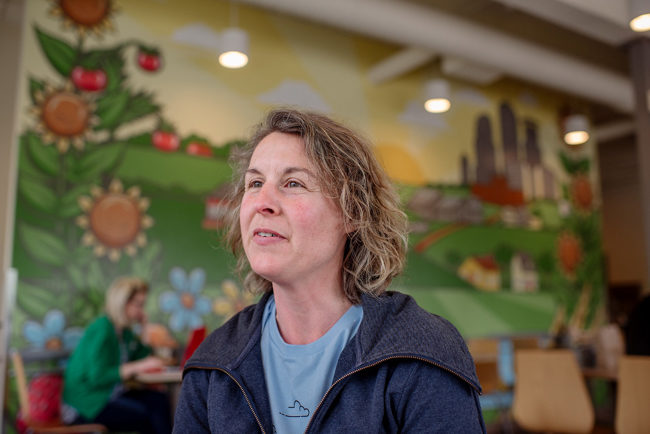
And we started meeting with the local farmer [from] Simple Harvest Farm, Kathy Zeman, who has been a mentor to us. We started meeting with her over the winter and started planning our farm.
We figured we could raise a few chickens for meat, and I would say Andy really loved bacon so we decided to raise a few pigs. …
We recently took a class through the Land Stewardship Project to do a little more forward planning because we definitely get stuck on the day-to-day stuff. We’d both like to be working more on the farm and less off the farm. A goal is in 5-10 years to, between the two of us, be working at least 50 percent on the farm. We’re slowly scaling up as far as production goes.
In the last year we went from 10 ducks to 100 ducks, all for eggs. And we’re raising a few more broiler chickens this year, and we’re really increasing our pig production.
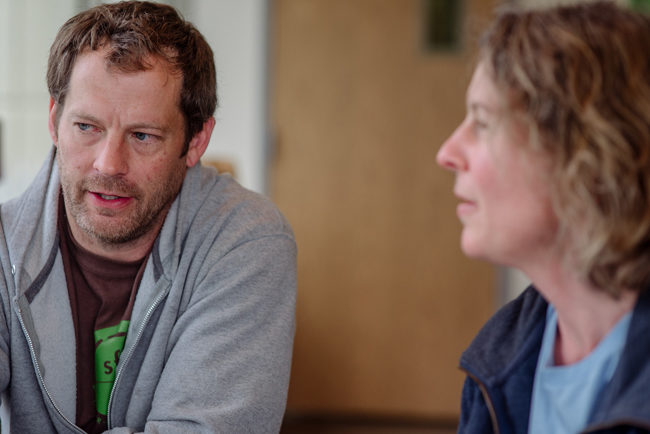
ON WHAT IT MEANS TO BE A SMALL FARM
TRIPP: A large-scale farm will typically sell to one main buyer. Like a dairy farm will sell all their milk to Land O’Lakes, for example. They’re really under the terms of that company.
OLSON: But they always have an income. Our income — we have to make decisions based on an annual scale. There may be extra income during certain months of the year, and negative income some months of the year. But it lets us be open to doing things a little differently.
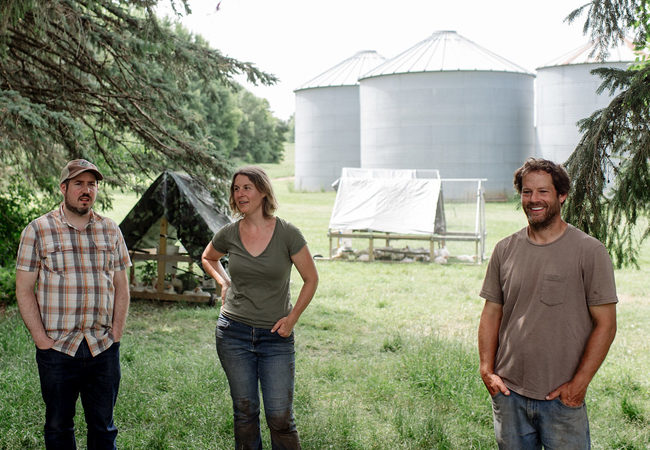
TRIPP: The difference in our situation is we do direct sales. We can sell to a consumer or to a restaurant or to a co-op or to a distributor who can help us sell to all those areas. I have this conversation with my dad, who was a dairy farmer. It’s hard for him to conceptualize how we can make this happen. We have to wear all these hats, but at the same time, we get to meet the customers who are consuming our product and talk to the chefs and see the creative things that are done. And we can see the results. Whereas if you’re just selling your milk to a company, you don’t necessarily see where that powdered milk or that butter goes.
ON WORKING WITH CHEFS
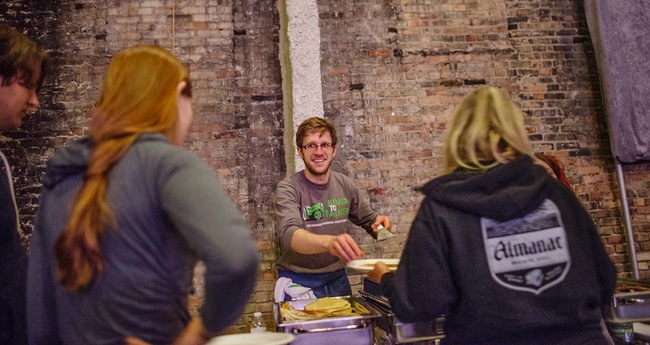
TRIPP: Paul Berglund [formerly of] The Bachelor Farmer has been a supporter of us from the beginning — well, just last fall. Ky and Mel Guse from GYST Fermentation Bar have been big supporters. And we’ve worked with Heyday since December.
In the wintertime [Berglund] used the duck egg as a deviled duck egg. I think it was served with a braised kale.
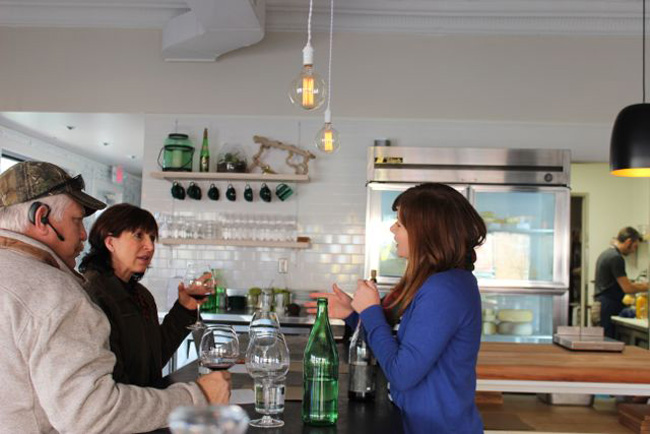
GYST started out with a deviled duck egg, and they now buy our chicken eggs. We’re not really focused on selling our chicken eggs to the restaurants because they would need such large quantities. But Gyst needed an organic, local, chicken egg, and we met them at the right time. They’re doing a pickled egg, and I know they’ve worked with some different suppliers, and it’s been so cool hearing the feedback, and we’ve heard it more than once: “Your eggs are so delicious!” I really think a lot of it has to do with the land that the chickens are living on.

